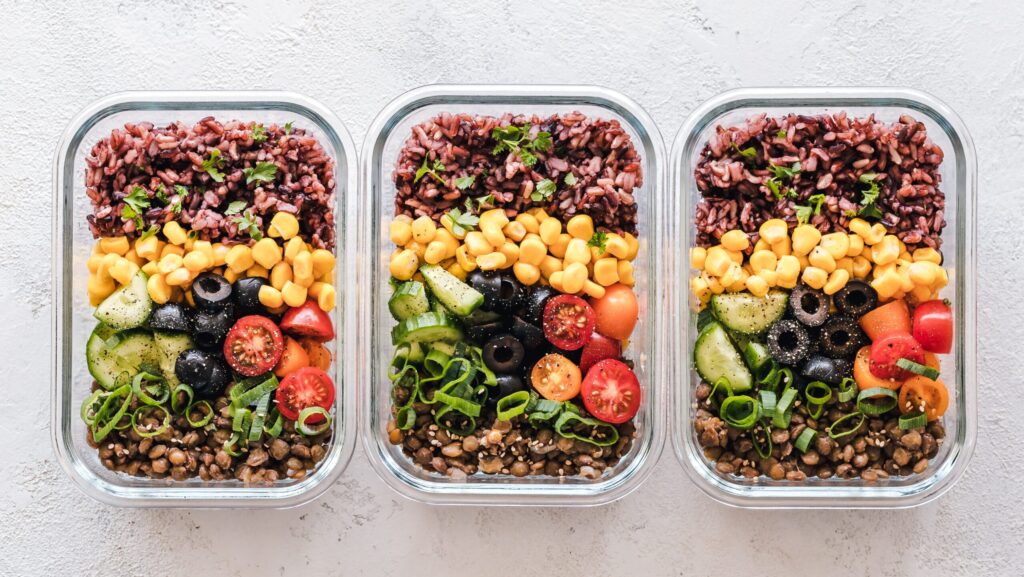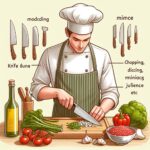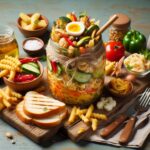For beginners, meal prep ideas often start with simple recipes and batch cooking. Preparing ingredients ahead of time streamlines weekly meal planning.
Meal prepping is a strategic approach to eating healthier and saving time, particularly suited for beginners looking to streamline their dietary habits. It involves selecting recipes, grocery shopping in advance, and preparing ingredients or entire meals that can be refrigerated or frozen for later consumption.
This method simplifies decision-making throughout the week, reduces the temptation of takeout, and ensures a variety of nutrients in every meal. As someone new to meal prepping, starting small with easy-to-cook dishes and pre-portioned containers will set a solid foundation for developing this beneficial habit. Emphasizing whole foods and simple ingredients can make the transition smoother, fostering a stress-free and sustainable approach to healthier eating habits.
Introduction To Meal Prep: Embracing The Basics
Starting a meal prep journey transforms how we view cooking and eating. It simplifies mealtime and upgrades nutrition. Meal prepping is for everyone, from busy parents to fitness enthusiasts. This guide helps beginners master meal prep essentials.
Understanding The Concept Of Meal Prep
Meal prep is preparing meals ahead of time. It involves planning, cooking, and storing meals for convenience. Imagine having a week’s food ready in just a few hours. It makes healthy eating effortless and stress-free.
The Benefits Of Meal Prepping For Health And Time Management
- Saves time: Cook once, eat several times.
- Reduces stress: No daily cooking hassle.
- Boosts health: Control ingredients, portions, and nutrition.
- Cuts costs: Avoid pricey takeouts and food waste.
Essential Tools And Equipment For Meal Prepping
Invest in the right tools for a smoother meal prep experience:
| Tool | Purpose |
|---|---|
| Quality Knives | Efficient chopping and slicing |
| Chopping Boards | Safe cutting surfaces |
| Various Sized Containers | Storing meals and ingredients |
| Slow Cooker | Hands-off cooking |
| Measuring Cups and Spoons | Precise ingredient portions |
With these tools, any beginner can become a meal prep pro.
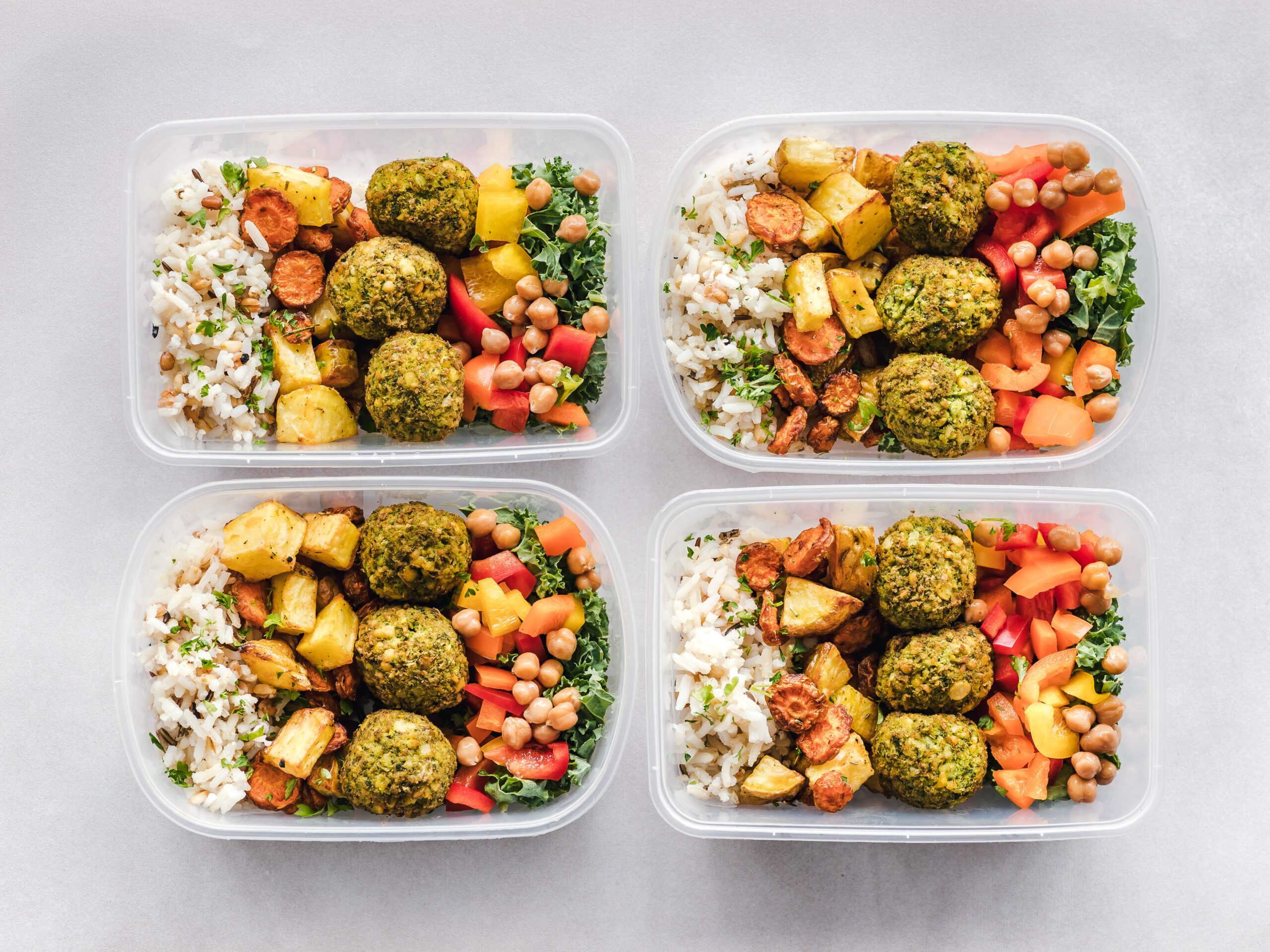
Planning Your Meal Prep Journey
The journey to meal prep success starts with a solid plan. Knowing what you want to achieve helps make the process enjoyable and fruitful. By setting clear goals and understanding the nutritional value of food, anyone can master the art of meal preparation.
Setting Realistic Goals And Expectations
Embarking on meal prep begins with setting achievable targets. Begin by planning for a few days rather than the whole week. Goals should feel challenging yet attainable. Reflect on your daily routine to ensure meal prep fits seamlessly into your schedule.
Creating A Balanced Meal Plan: Macros And Micronutrients
Good health comes from a balanced diet. Your body needs proteins, fats, and carbs—the macros. Vitamins and minerals—the micronutrients—are just as vital. Aim for diversity on your plate to cover all nutritional bases.
- Proteins: Lean meats, legumes, tofu
- Fats: Avocado, nuts, seeds, oils
- Carbs: Whole grains, fruits, vegetables
Grocery Shopping Tips For Efficient Meal Prep
Organized shopping saves time and money. Make a grocery list aligned with your meal plan. Stick to your list to avoid the allure of unhealthy choices. Go for fresh produce and bulk buys for staples like rice or pasta.
Food Safety And Storage Fundamentals
Proper food handling is crucial for health. Wash hands and surfaces often. Keep raw and cooked foods separate. Understand safe storage practices. Cooked meals should go into the refrigerator within two hours. Use airtight containers to keep meals fresh.
Simple Meal Prep Ideas For Beginners
Welcome to the world of meal prep, a haven for busy bees and health enthusiasts alike! Starting your meal prep journey can be a breeze with a few practical ideas. Let’s dive into some strategies to keep your meals exciting and your kitchen time efficient.
Batch Cooking 101: Recipes And Techniques
Batch cooking is your best friend for meal prep. It involves cooking larger quantities of food at once to save time during the week. Start with recipes that are easy to scale up and store well.
- Chili and Stews: Cook a big pot and divide into portions for the week or freeze for later.
- Rice or Quinoa: Make extra. Store in single servings for quick meal addition.
- Roasted Vegetables: Versatile for salads, sides, or bowl creations.
Mix-and-match Strategies For Variety
Prevent boredom with mix-and-match techniques. Create a base of proteins, carbs, and veggies, then alter flavors with different spices or dressings.
| Protein | Carb | Vegetable |
|---|---|---|
| Grilled chicken | Sweet potatoes | Steamed broccoli |
| Baked tofu | Brown rice | Roasted zucchini |
Time-saving Tips: Using Pre-cooked And Frozen Ingredients
Save precious minutes by incorporating pre-cooked and frozen ingredients. These options help whip up balanced dishes without the long cooking times.
- Grains: Opt for pre-cooked rice or quinoa packs.
- Vegetables: Frozen veggie mixes are a quick addition.
- Proteins: Pre-cooked frozen chicken or tofu cubes can be lifesavers.
Vegetarian And Special Diet Meal Prep Consideration
Catering to vegetarian diets or other special dietary needs requires a few tweaks in your meal prep routine.
- Plant-based proteins: Include options like lentils, beans, or chickpeas.
- Gluten-free necessities: Choose quinoa, buckwheat, or certified GF oats.
- Dairy alternatives: Use nut milks and vegan cheeses in your prep.
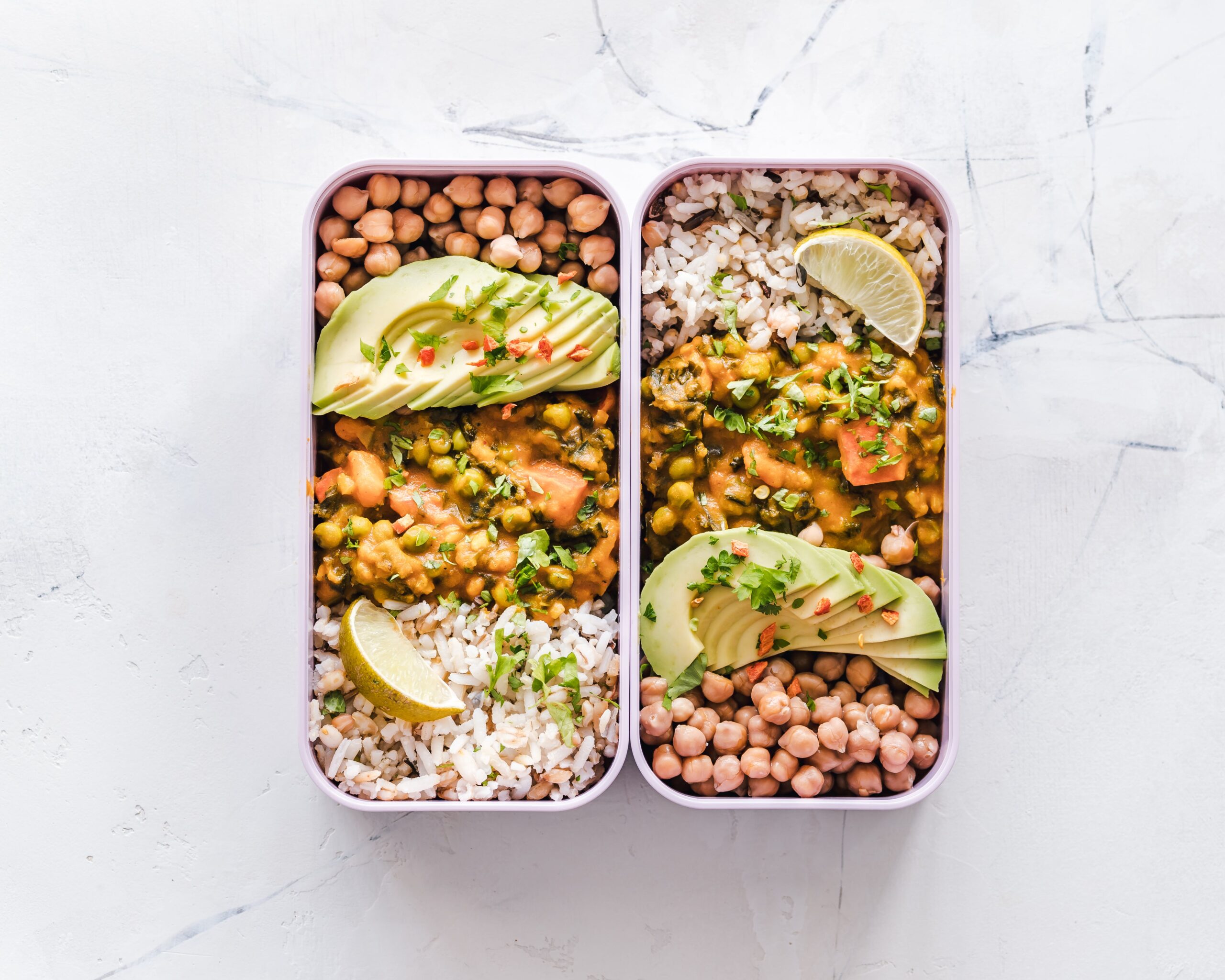
Advanced Meal Prep Techniques
Unlock the power of meal prep with advanced techniques meant to save time, enhance flavor, and cater to your nutritional needs. Whether you’re a busy parent, a fitness enthusiast, or simply looking to spice up your weekly meals, these strategies aim to simplify your cooking process and infuse variety into your diet.
Mastering The Art Of Seasoning: Flavor Without The Calories
Seasoning is key to delicious meals. Try these ideas:
- Herbs like basil and cilantro add freshness.
- Spices such as cumin and paprika bring warmth.
- Use citrus zests for zingy notes.
Incorporating International Cuisines Into Your Meal Prep
Diverse flavors prevent boredom. Sample the world with these dishes:
| Cuisine | Dish |
|---|---|
| Mexican | Chicken fajitas |
| Italian | Whole wheat pasta salad |
| Japanese | Tofu stir-fry |
Tailoring Meal Prep To Weight Loss, Muscle Gain, Or Maintenance Goals
Align your meals with your goals. Use these tips:
- For weight loss, focus on veggies and lean proteins.
- For muscle gain, add more lean meats and complex carbs.
- For maintenance, balance macros and portions.
Overcoming Common Meal Prep Challenges
Staying consistent with meal prep helps. Overcome hurdles:
- Storage: Use quality containers.
- Time: Prepare components in batches.
- Variety: Swap out proteins and veggies weekly.
Maintaining Your Meal Prep Routine
Embarking on a meal prep journey can transform the way you eat and live. But how do you keep it fresh and sustainable week after week? Let’s explore some strategies to maintain your meal prep routine long-term, ensuring it remains as exciting and beneficial as it was on day one.
Staying Motivated And Creative In The Kitchen
To keep your passion for meal prepping alive, remember these key points:
- Vary your menu to avoid burnout from repetitive meals.
- Theme your weeks, like ‘Mexican Monday’ or ‘Thai Thursday’, to spark creativity.
- Use music or podcasts to make kitchen time enjoyable.
Seasonal produce and vibrant spices can also bring new flavors to your palette!
Evaluating And Adjusting Your Meal Prep As Your Needs Change
Lifestyles and bodies evolve, so should your meal prep. Check in with yourself:
- Assess your energy levels and satisfaction after meals.
- Modify portions if your activity levels or weight goals change.
- Revisit your recipes every few months to ensure variety.
Community And Social Aspects Of Meal Prepping
You’re not alone on this journey. Share the experience:
- Join online forums or local groups for tips and support.
- Organize a meal swap with friends to diversify your menu.
- Follow hashtags on social media for inspiration and community engagement.
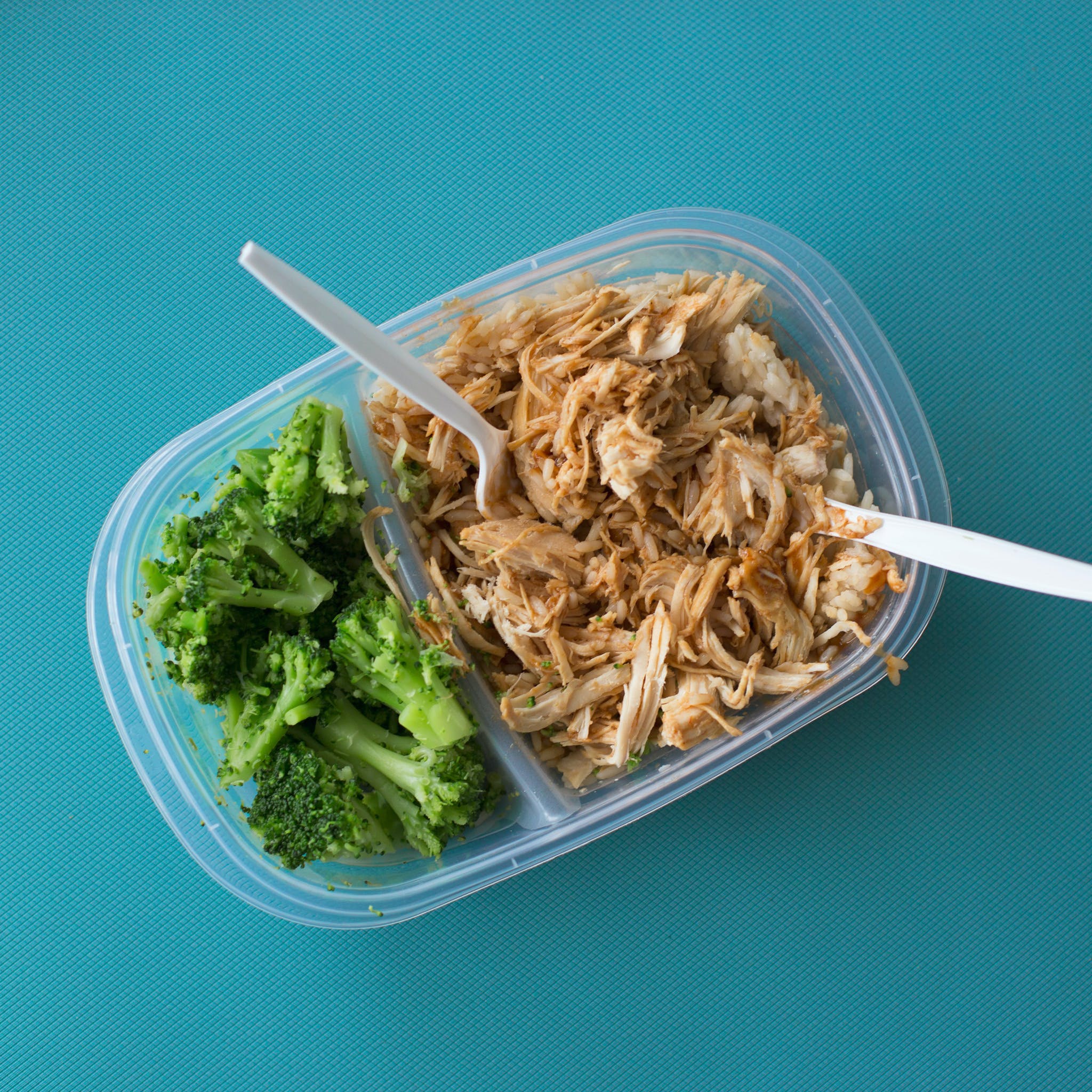
Resources And Tools For Continued Learning
Growth is key in maintaining your meal prep routine. Utilize resources:
- Kitchen gadgets like slow cookers or air fryers can simplify cooking.
- Cookbooks and blogs provide a wealth of new recipes.
- Meal prep containers keep your food fresh and portioned.
Remember, practice makes perfect, and the right tools make all the difference!
Conclusion
Embarking on your meal prep journey doesn’t have to be daunting. With these beginner-friendly ideas, you’re set to save time, enjoy healthier eating, and master kitchen efficiency. Remember, small steps lead to big changes. So, start prepping, tweak as you go, and savor the flavor of homemade goodness!
Frequently Asked Questions On Meal Prep Ideas For Beginners
What Is The Easiest Food To Meal Prep?
The easiest food to meal prep is a simple salad with grilled chicken. This meal is nutritious, versatile, and requires minimal cooking time.
How Should A Beginner Start A Meal Plan?
Beginners should assess dietary goals, calculate calorie needs, and opt for balanced meals with vegetables, proteins, and carbohydrates. Planning meals weekly and prepping ingredients can streamline the process. Utilizing meal planning apps or templates may offer guidance and structure.
How Should A Beginner Meal Prep For The Week?
Begin with simple recipes and shop for necessary ingredients. Allocate time on weekends to cook and portion meals. Store prepped food in the refrigerator or freezer. Label containers with dates. Keep variety in mind to stay motivated.
Is It Ok To Meal Prep For 5 Days?
Yes, it’s generally safe to meal prep for 5 days. Ensure to store meals properly, use fresh ingredients, cook foods thoroughly, and refrigerate promptly for safety.

